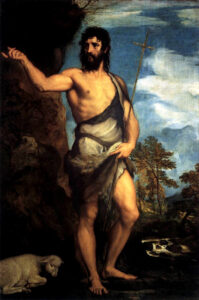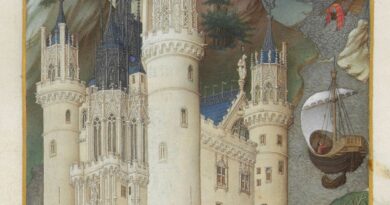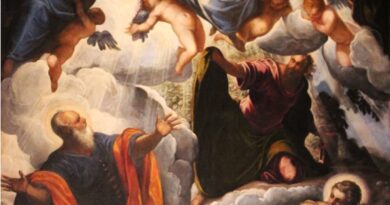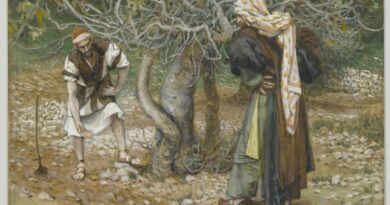2nd Sunday of Ordinary Time
Massimo Palombella

Today’s Gospel (Jn 1:29-34), narrating the encounter between Jesus and John the Baptist, focuses on the identity of Jesus, as will happen substantially in this segment of “ordinary time” that will lead us to the beginning of Lent.
The identity of Jesus is the focal point for the definition of the ‘Christian’ God and at the same time for outlining a vision of the human person and a way of living the same relationship with God.
To recognise the identity of Jesus, to affirm that God became man, is to say that history and culture have value because they have been ‘assumed’ by God. Objectively assessing the historical events of Jesus of Nazareth – his being born of a woman, growing up in a specific culture, being subjected to the laws of human growth, his suffering, death, resurrection and being taken up into heaven – necessarily leads us to overcome a Platonic or Neo-Platonic vision of reality where history exists as an instance from which to slowly free oneself, to redeem oneself, to access a ‘pure’ situation now freed from the weight and ‘dirt’ of space and time.
The Incarnation, ‘God made man’ – the specifics of Christianity – thus posits an absolute continuity between history and meta-history, between time and eternity. We find this simple, yet revolutionary datum when we affirm our faith in the Resurrection (and in the Christian funeral rite, the deceased body is incensed because we will find that ‘body’ again – with the characteristics of a dimension without space and time – in eternity). The same happens when we intelligently evaluate for example, the experience of Christian monasticism which, unlike other forms of monasticism, does not stand as an “escape from the world”, from history, but as a different – and perhaps more intense – form of active presence in history through prayer and the total offering of oneself to God.
In essence, in Christianity, history, culture, the human… all of this has been “redeemed”, “healed” because everything has been taken on by a “God made man”, definitively breaking the archaic – and all the more recurrent – distinction between the “sacred” and the “profane”. In the consequent vision of reality, therefore, there are no things that are intrinsically ‘sacred’ or ‘profane’, but only the way they are used and the way the historical cultural context comes to codify instances with moral content.
With this perspective, we can rightly understand the Christian liturgy made up of simple and ordinary signs such as bread, wine, water, oil… All subject to deterioration, and thus to history, signs that in liturgical action become the place of encounter, through the senses, with the humanity of Jesus. But also a Liturgy that has been enriched historically by the best of every culture where Christianity has flourished, renouncing a monolithic and ‘sacred’ untouchable form. In this Liturgy we can place, among the many signs, also the ‘sonorous’ one, and therefore music, tracing precisely in this Liturgy, the origin of Western cultured music.
The Communion antiphon of today’s celebration is taken from Psalm 19 (Ps 19:6) with the following text:
“Laetabimur in salutari tuo:
et in nomine Domini Dei nostri magnificabimur.”
(We shall rejoice in your salvation;
and in the name of the Lord our God shall we place our pride).
The attached music, in Gregorian Chant, is taken from the Graduale Triplex published in Solesmes in 1979. The live performance is by the Schola Cantorum of the Co-Cathedral of the Sacred Heart, Houston, Texas in January 2020 (https://youtu.be/3Xk_xwXMNU0)
A blessed Sunday and heartfelt greetings.


